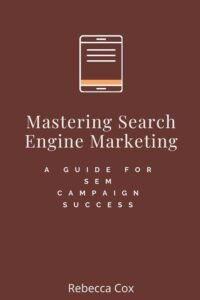As the digital landscape continues to evolve, every business must leverage search engine marketing (SEM) for gaining visibility, driving traffic, and achieving success online. This comprehensive guide will help you master SEM and make the most of your digital marketing strategy.
Search Engine Marketing, or SEM, is a form of internet marketing that involves the promotion of websites by increasing their visibility in search engine results pages (SERPs) through paid advertising. It works hand in hand with search engine optimization (SEO), but while SEO focuses on unpaid, organic rankings, SEM revolves around paid search. The biggest player in SEM is Google Ads, formerly known as Google AdWords.
SEM offers multiple advantages for your online presence:
1. Instant visibility: Unlike SEO, which requires time to build, SEM provides immediate visibility on search engines.
2. Targeted advertising: SEM allows for targeting based on numerous factors including keywords, demographics, location, and more.
3. Measurable results: Every aspect of SEM is measurable, from click-through rates to conversion rates.
Here are some tried and tested strategies to help you succeed with SEM:
Keyword research is fundamental in SEM. It involves identifying popular words and phrases people enter into search engines. Tools like Google Keyword Planner can help with this.
Structure your campaigns by dividing them into various ad groups that focus on different but related keywords. This allows you to create highly relevant ads that align with user search queries.
Your ad copy should be compelling and strong enough to encourage users to click on your ad. It should highlight your unique selling propositions and include a clear call-to-action.
Your landing page should be relevant to your ad copy and keyword, providing a consistent user experience. Also, it should direct users toward taking a specific action, like filling out a form or making a purchase.
Critical metrics to measure your SEM success include:
– Click-Through Rate (CTR): This shows the percentage of users who click on your ad after seeing it.
– Conversion Rate: This measures how many clicks led to desired actions like purchases or sign-ups.
- Quality Score: Google rates the quality and relevance of your keywords and PPC ads, impacting the cost per click.
Mastering SEM can be a game-changer for your online marketing strategy. Remember, successful search engine marketing takes time and commitment. However, the benefits are worth it as you gain increased visibility, targeted traffic, and measurable results.
With this guide, you’re well on your way to leveraging SEM for business success. Remember, stay updated with changes in SEM practices, keep tracking your results, and continuously optimize your strategies. Happy marketing!



